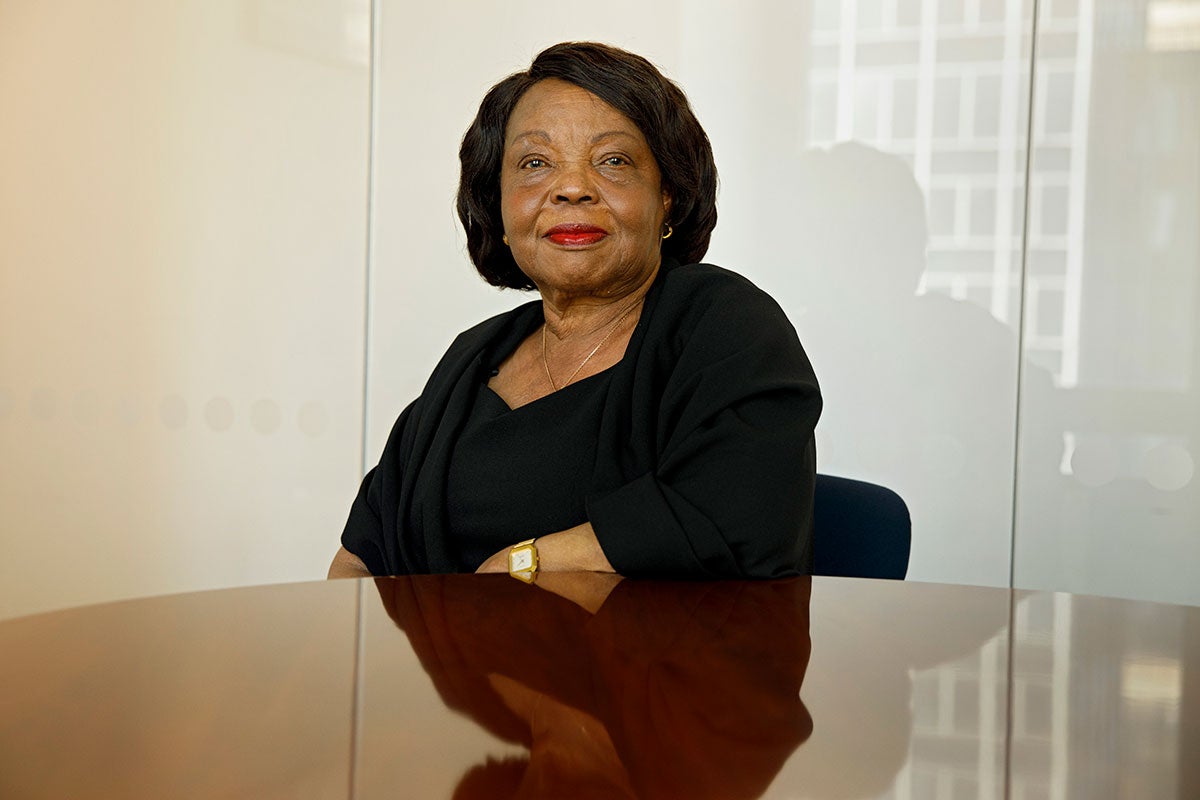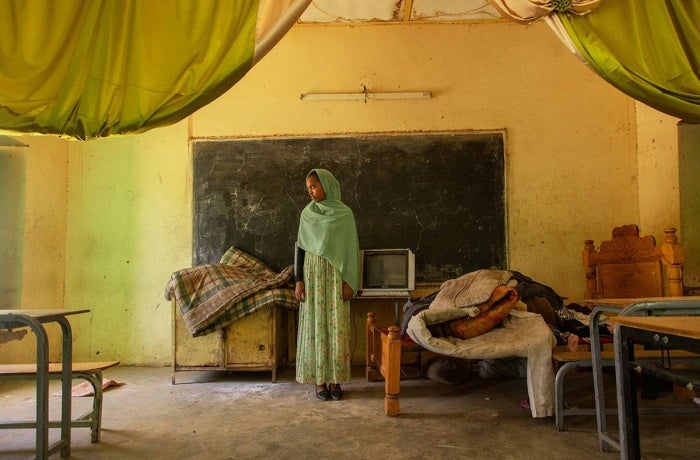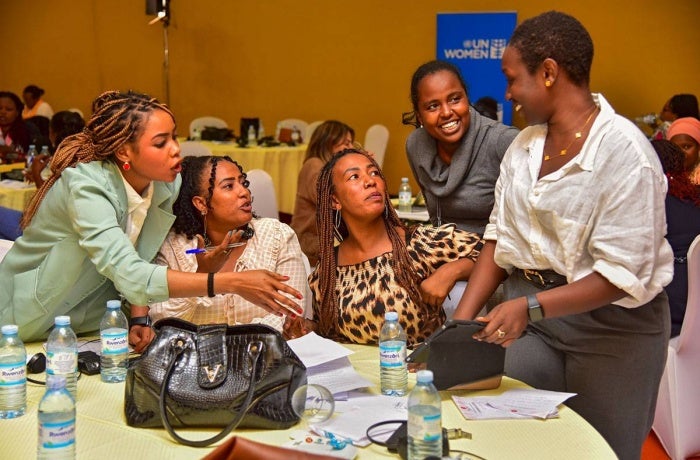‘Women try and make peace’ – Interview with Kenyan jurist Effie Owuor
Effie Owuor made history when she joined the Kenyan attorney general’s chambers as the country’s first female state council in 1967. In the years that followed, she became the first woman to serve as a senior magistrate, high court judge, and appeals court judge in Kenya.
She founded the Kenya Women Judges Association, and made landmark rulings affecting constitutional law, elections, and criminal and civil matters.
Owour, now retired from the judiciary, has most recently worked on the African Union’s Panel of the Wise, where she deployed across the continent to mediate and observe conflicts. As the co-chair of FemWise-Africa, she champions the role of African women in conflict prevention and mediation.
Owour recently spoke with UN Women about the challenges women face in conflict, as well as their invaluable role in peace processes.

Women have made much progress—but more remains to be done
I began taking interest in women’s issues as far back as 1975. By then, I was a judge over the Kenya High Court. And we were so far behind on issues of women rights. Basically, the women’s world was a different world.
Things have changed, and changed a lot. By the time we came to Beijing [for the 1996 Fourth World Conference on Women], there were many more women judges coming onto the bench, and many more women lawyers. In most of the African countries, the legal field was attracting many, many more women judges and lawyers than it had done before.
Nonetheless, from that time up to now, you have more responsibilities outside your work simply because you are a woman judge. You find yourself having to do a lot of work on women’s rights, and much more is demanded of you.
We haven’t attained everything that we would want to, in all countries.
Women must have decision-making power in peace processes
For each peace mission that we have, we are now demanding for women to make up 30 per cent of delegations—and we are hoping that we can get it up to 50 per cent.
Women mediators are doing so much work in the grassroots. For instance, if there is a problem of water—a town on one side of a river takes more water than a town on the other side—it is often women who work to negotiate. They try and resolve issues through local organizations.
What we now want is to move from that grassroots level. When we are asking for greater percentages of women in peace talks, we are not asking for that grassroots level—we are asking to be at the actual peace table, where the final decisions are made.
We are hardly ever at that level. That means, by the time peace accords and peace agreements come out, issues affecting women are not being addressed at all.
Ensuring women in conflict are not forgotten
When women are at the table, there is someone at negotiations to ask: what’s going to happen to women when they return home?
The men may say, “You will all go home, and you will all get five acres of land.” But that is to the head of a family; what about women returnees?
They may have run away when they were little girls; they may have been refugees; they may have produced children; they may have been raped by a soldier or by someone else. When a woman refugee comes back to her country, the first thing she’ll be asked is, “Who is the father of your child? Is this child a Kenyan? Or is this a Somali?”
There are insensitive things like that. If it’s only men at the table, it is not in their interest to deal with these issues. But if there are women there, these are their biggest problems.
So, gender sensitivity and equality need to be at the very top; we want women to go and negotiate things that affect us.
You can’t have of your population happy and peaceful while the other half is suffering.
It all starts with peace
Where there is no peace, there is very little development that takes place. How can people worry about other things—education, health, what have you—when there is no peace? What education can you worry about when you are busy running from one place to another, when you live in a camp?
For me, peace is issue number one; peace is issue number two; number three—up to number ten. You can’t compare the development of countries that are at war with those that are not at war.
Things are changing in the peace building movement. Young women have to come in. They have to have their space. After all, we are talking about things that are going to affect them. We are trying very hard mentor young people, to help them move to the next level.
Young women must be involved—if they’re not involved, then what happens tomorrow?
Working across borders to end conflict
Women don’t make war in negotiation meetings, when we can go to them. Women try and make peace.
A week ago, we had a meeting between women from the DRC and Rwanda. They didn’t talk about war, they talked about how they can ask their governments to make sure that there is peace.
In their own way, women can cross borders at any given time to try and make things better for each other. Women in Gaza, women in Ukraine—the problems are different, but they are worried about themselves, about their families.
When it comes to peace, I believe that if women can get involved in peacebuilding and conflict resolution, the world would be a better place.









